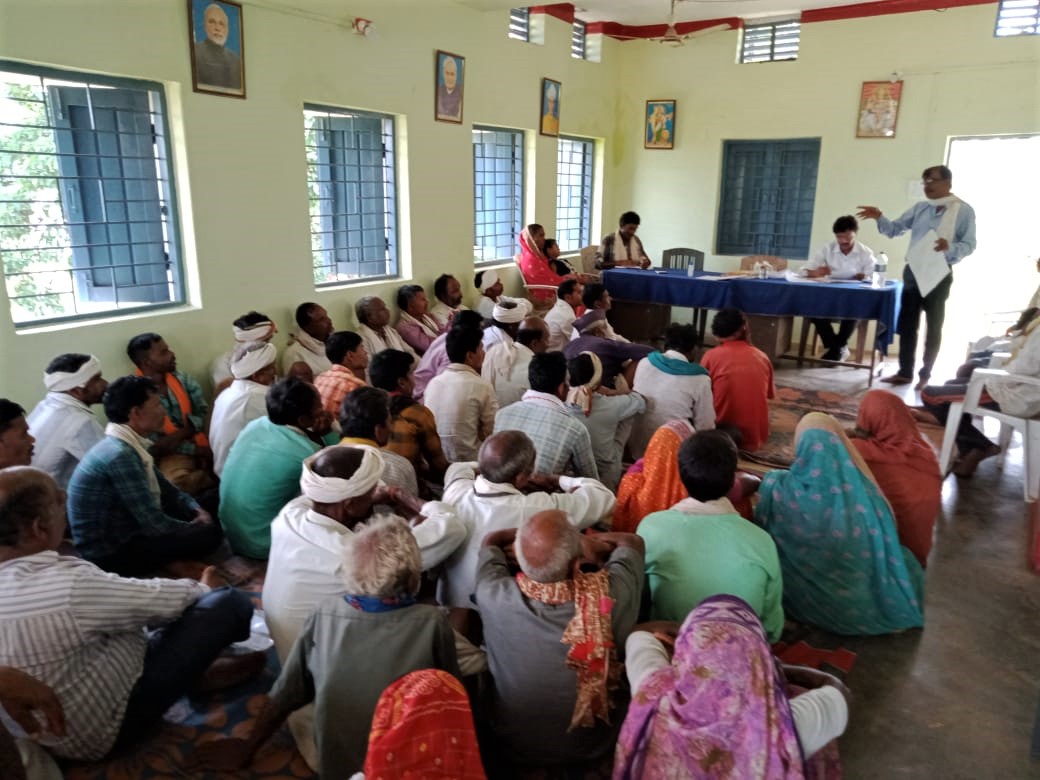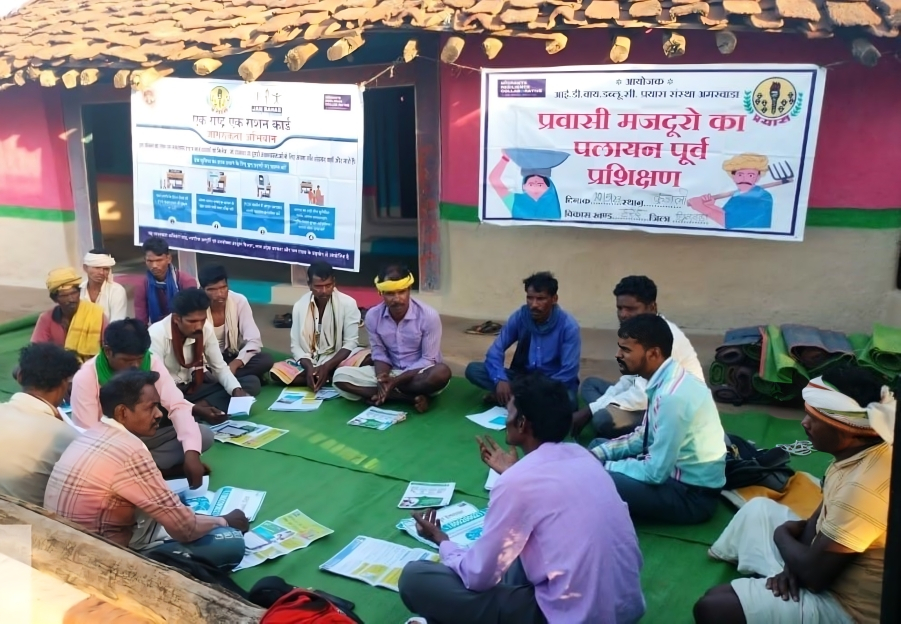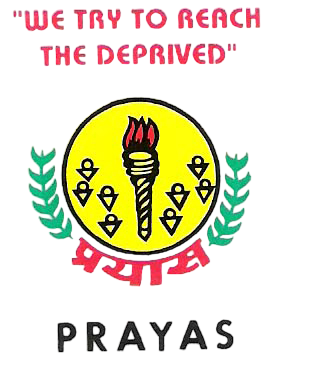Promoting Safe Migration

IDYWC strives to promote safe migration. According to the organization's study, in source districts like Chhindwara and Seoni, 75 to 85 percent of the villagers move to other districts in search of work. In villages with a large number of tribal people, dry land, unfair caste relations, or proximity to urban or industrial centers. Due to the great reliance of these families on the remittances of the migrants, it has been noted that the migrant workers do not hesitate to accept jobs that are hazardous, poorly compensated in comparison to other workers, or located at the base of the pyramid work. These workers are subjected to many difficult situations in the destination. With an almost denial of the government towards the process of migration and the issues and challenges faced by the migrants, they are denied of their basic rights and entitlements ... among the rural poor in Madhya Pradesh Seasonal migration has emerged as one of the most significant livelihood strategies adopted and the trend is predominantly in the form of seasonal mobility of the rural people to other rural or urban areas that have better livelihood opportunities. Large-scale intrastate migration which is rural-rural or rural-urban in nature is observed in almost all districts of Madhya Pradesh. Movement of agricultural labourers and farmers with small landholdings from Chhindwara during the lean period for agricultural yield to nearby rural areas like Narsinghpur and far-off urban areas like Bhopal is a common site. With an increasing crisis in the agriculture, ecological and environmental crises which result in near collapse of rural agrarian economy during some seasons of the year, a highly caste based society that limits the livelihood opportunities of the marginalized caste and tribal communities and also the regional inequalities that has led to the growth a few urban pockets as employment and economic hubs are all factors that contribute to the prevalence of the phenomenon of seasonal migration among the rural poor in Madhya Pradesh. Due to lack of exposure to any other sector other than agriculture in the villages, these migrant workers find themselves work as unskilled workers in construction, garment industry or become a part of the unorganized street vendors, rickshaw-pullers, domestic helper or waiter in small dhabas. IDYWC has been working towards providing comprehensive services and solutions to the issues faced by migrant workers in Amarwara, Harrai, Tamiya, Jamai and Mohkhed blocks of Chhindwara and Ghansor block of Seoni district of Madhya Pradesh by working closely with them at their source as well as destination regions since 2009. Initial support for this cause was received by Sir Dorabji Tata Trust and currently supported by Dignity alliance and Rodenberry Foundation. IDYWC’s mandate is to work with the most underprivileged segments of the society namely the Gond and Bhariya, who form the most oppressed community in this region. The other trade which pulls the people after construction sector is the catering and hotel Industry, private security guards, domestic aid etc. Due to lack of proper competent skill, they don’t have bargaining power and works as cheap labour on larger scale. Besides, there are number of cases where labors have been cheated by contractors on wage issues, women getting sexually exploited particularly at worksites. This has created involuntary migration in many cases. Tribal being unknown to bigger towns, at many occasions have been sent by agents and local contractors to different destinations against their will, and pre scheduled destinations. Youths though having average literacy level but lacking skill get themselves involved in those trades.
Nature Of Work
The migrants from the project area work in a range of jobs at various locations. Almost 54% of all migrants work as construction labourers, followed by agricultural labourers (41%), industry/factory employees, and other jobs (5 per cent) There are very few HHs working in the hospitality industry, for example. Since a decade IDYWC has been making concerted efforts to improve the quality of life of the migrant workers working in the construction site. Special strategies were designed and implemented to reach out to these target groups and provide them services and support to enhance their livelihood opportunities and promoting their rights and entitlements. Based on the experience and the realization ...of the need to reach out to larger number of migrants working in other large sectors like the hotel and (street vendors, domestic workers) and others food industry, factories, transport sector (drivers), informal sector workers The last two years of work on migration issue in COVID 19 pandemic has revealed that migration is a complex issue that requires equally complex solutions. The highly floating nature of the migrant populations, the multiple layers in which they are exploited and the lack of awareness among the migrants about their rights and entitlements have all led to a situation in which any intervention to be implemented is challenging. The goal of promoting safe migration practices and make planning and governance processes more inclusive of migrant worker is a long-term struggle than a short-term one. Systemic changes are hard to come by, take time and need perseverant persuasions of not only bureaucracy but also communities.
IDYWC approached the challenges and opportunities of migration in both the rural and urban context. Tailor-made support and services were extended to migrant workers both at the source regions and the destination and various stakeholders were identified as key to enhancing both the quality of governance for the migrants and quality of life of the migrant workers. IDYWC therefore not only attained fair amount of success in mainstreaming migrants in the governance and service delivery mechanisms, but also worked towards building the capacities of both the communities and the elected local bodies to address the issues of migrant workers more effectively.

Migrant Resilience and Support Centre
Resource and support centers have been established. Tailor-made services and support mechanism were extended to migrants and their families ...and also to unemployed youth who were identified as potential migrants. The services provided to the migrant workers were multi-layered. From providing identity cards to give a valid identity to the migrant workers to provide them key services like conducting health camps, extending mediation and legal support in cases of strained employer-employee relations, providing handholding support to access benefits and entitlements guaranteed under various government schemes and programmes.
The center also conduct trainings, capacity building programs and orientations sessions to make migrants better informed about their rights and entitlements. Apart from extending support and services, the MRCs have been successful in reaching out multiple stakeholders like district officials, civil society partners and local level community groups and employers of migrant workers to promote migrant friendly practices.
Active Partnership with Panchayats to Promote Safe Migration Practices
The most important achievement of IDYWC is to catalyze systemic changes and approaches to promoting safe migration....The major breakthrough has been made in sensitizing PRIs about migration related issues and also engaging with them to promote safe migration. Through persistent advocacy and sensitization programs, it is resulted in the maintenance of migration register in all intervening Panchayats. These registers not only provide micro-level data on the magnitude and patterns of seasonal out-migration from villages, but also has emerged as a powerful tool in helping the PRIs to support migrants and families in various ways. For instance, there have been many cases where the PRIs have used the migration register to follow-up with the migrants at their destination work sites and intervened successfully to resolve cases of exploitation of migrant workers at worksite.
Awareness amongst Migrants about their Rights and Entitlements
The low levels of awareness have resulted in the alienation of the migrants and disengagement of them with the government to resolve their issues. ...It is observed that many migrants still do not have access to formal financial products and services like savings, credits, remittance and insurance forcing them to depend on informal financial service providers like individual money lenders to meet their personal financial needs and aspirations. A large majority (80.5%) of the migrants are paid by cash and 18. 5% are paid wages in the form of kind. However, due to lack of a good understanding of savings and financial investment, much of the cash earned is used for consumption. A major reason for this is that only a small portion of people living in the rural areas have bank accounts. The reach of the concept of banking has still not penetrated into the rural regions.
Enhancing Livelihood Opportunities and Up-scaling Skill Building
IDYWC leverages the Self-Help Groups (SHGs) model to improve the livelihood opportunities of the poor. ...These SHGs were then linked to the Mid-day Meal scheme where these women came together to cook meals for the school children. SHGs were also encouraged and supported for goat farming, Agri business, Manihari shop, MFP Collection & Storage, Land lease for agriculture, Dairy, Poultry, small scale provision stores, Garment making to earn additional income. IDYWC realizes that a large number of migrants or potential migrants have a certain degree of skills and enterprise to explore possibilities of working in urban settings. Skill development and up-gradation training on Mobile repairing, Electric motor rewinding, Masonry work, Dona-pattal making, Tile making, Automobile, Electrician, Tailoring and Driving training were provided to migrant workers, especially youth. The project also aims to link the unemployed youth in the source as well as destination to various employers and provide them with viable options for livelihood. Many migrants have been identified as those who are forced to migrate due to chronic poverty. A total of 5357 youths were given skill development and capacity building training. This has directly helped the youths and is getting paid higher wages and even gets opportunities to work in the organized sector.
Soil and Watershed Management to Counter Issue of Migration
The Soil and Water Conservation program through Watershed Management targets 120 villages of Junnardeo, Mohkhed, Tamia, and Harrai blocks of Chhindwara district. ...Due to water shortages and the importance of safe potable water, and especially to counter issue of migration of the area through generating employment opportunities for the migrant workers. IDYWC works in partnership with the community to develop action plans for managing and restoring level of ground water and irrigation schemes. The rehabilitation of irrigation schemes increases water supply and household food security. Furthermore, IDYWC promotes the development of techniques for water resource management.
Inspiring Migrants towards Education
Children of migrant workers struggle to achieve the same level of educational success as their peers. Relocation causes discontinuity in education. ... Relocation causes discontinuity in education since children also migrate with their parents due to lack of family support at the source regions to take responsibility of the children. In this situation, a large number of children of migrants were found to be out of school as they migrate with their parents from one region to the other. The village development committee formed by IDYWC in each village to take this responsibility and this has ensured that these children can reside and get education in their own village. Thus, children were neither out of school and they are also saved from the vulnerabilities that usually face them in the destination worksites. On the other hand, IDYWC serves the practical needs of migrant children with integrated social and educational resources such as school facilities equipped with teaching learning material, evening classes, family education, occupational skills training and healthcare. It draws attention to migrant children’s development by creating a sense of identity and social responsibility, helps to nurture their social skills. assists PRIs in managing migrant populations, understanding their needs and enriching community education activities. Built a social resource network platform for migrant children and established a tracking information system for migrant children by involving local volunteers trained by the organization.
